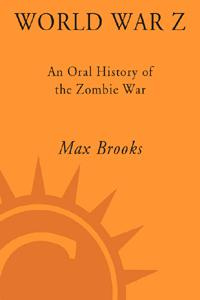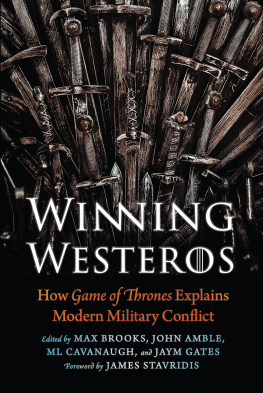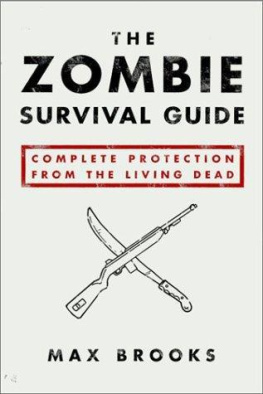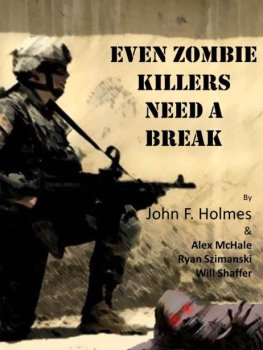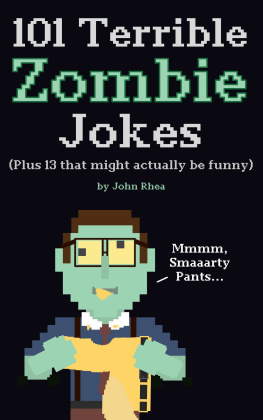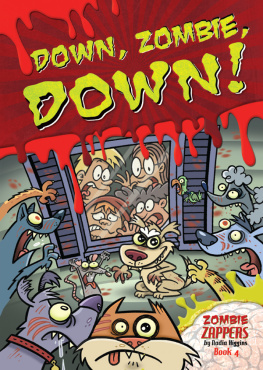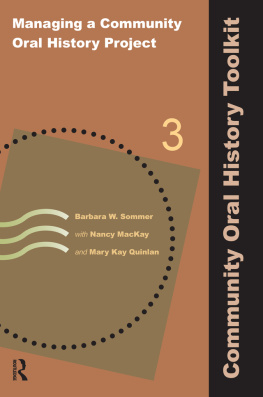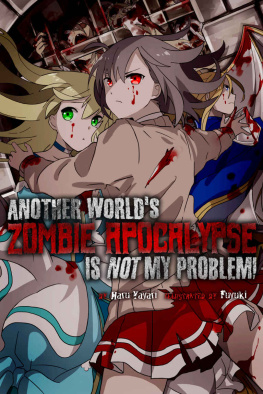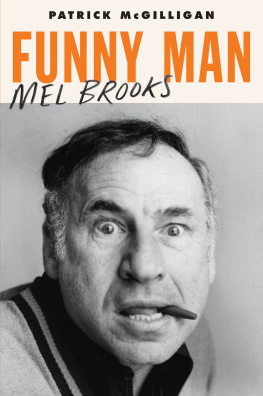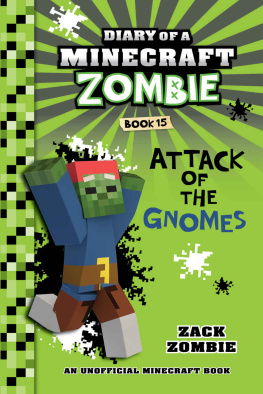Max Brooks - World War Z: An Oral History of the Zombie War
Here you can read online Max Brooks - World War Z: An Oral History of the Zombie War full text of the book (entire story) in english for free. Download pdf and epub, get meaning, cover and reviews about this ebook. year: 2006, publisher: Crown, genre: History. Description of the work, (preface) as well as reviews are available. Best literature library LitArk.com created for fans of good reading and offers a wide selection of genres:
Romance novel
Science fiction
Adventure
Detective
Science
History
Home and family
Prose
Art
Politics
Computer
Non-fiction
Religion
Business
Children
Humor
Choose a favorite category and find really read worthwhile books. Enjoy immersion in the world of imagination, feel the emotions of the characters or learn something new for yourself, make an fascinating discovery.
- Book:World War Z: An Oral History of the Zombie War
- Author:
- Publisher:Crown
- Genre:
- Year:2006
- Rating:3 / 5
- Favourites:Add to favourites
- Your mark:
- 60
- 1
- 2
- 3
- 4
- 5
World War Z: An Oral History of the Zombie War: summary, description and annotation
We offer to read an annotation, description, summary or preface (depends on what the author of the book "World War Z: An Oral History of the Zombie War" wrote himself). If you haven't found the necessary information about the book — write in the comments, we will try to find it.
World War Z: An Oral History of the Zombie War — read online for free the complete book (whole text) full work
Below is the text of the book, divided by pages. System saving the place of the last page read, allows you to conveniently read the book "World War Z: An Oral History of the Zombie War" online for free, without having to search again every time where you left off. Put a bookmark, and you can go to the page where you finished reading at any time.
Font size:
Interval:
Bookmark:


CONTENTS
COVER PAGE
TITLE PAGE
DEDICATION
INTRODUCTION
WARNINGS
BLAME
THE GREAT PANIC
TURNING THE TIDE
HOME FRONT USA
AROUND THE WORLD, AND ABOVE
TOTAL WAR
GOOD-BYES
ACKNOWLEDGMENTS
ALSO BY MAX BROOKS
COPYRIGHT
For Henry Michael Brooks,
who makes me want to change the world
INTRODUCTION
It goes by many names: The Crisis, The Dark Years, The Walking Plague, as well as newer and more hip titles such as World War Z or Z War One. I personally dislike this last moniker as it implies an inevitable Z War Two. For me, it will always be The Zombie War, and while many may protest the scientific accuracy of the word zombie, they will be hard-pressed to discover a more globally accepted term for the creatures that almost caused our extinction. Zombie remains a devastating word, unrivaled in its power to conjure up so many memories or emotions, and it is these memories, and emotions, that are the subject of this book.
This record of the greatest conflict in human history owes its genesis to a much smaller, much more personal conflict between me and the chairperson of the United Nations Postwar Commission Report. My initial work for the Commission could be described as nothing short of a labor of love. My travel stipend, my security access, my battery of translators, both human and electronic, as well as my small, but nearly priceless voice-activated transcription pal (the greatest gift the worlds slowest typist could ask for), all spoke to the respect and value my work was afforded on this project. So, needless to say, it came as a shock when I found almost half of that work deleted from the reports final edition.
It was all too intimate, the chairperson said during one of our many animated discussions. Too many opinions, too many feelings. Thats not what this report is about. We need clear facts and figures, unclouded by the human factor. Of course, she was right. The official report was a collection of cold, hard data, an objective after-action report that would allow future generations to study the events of that apocalyptic decade without being influenced by the human factor. But isnt the human factor what connects us so deeply to our past? Will future generations care as much for chronologies and casualty statistics as they would for the personal accounts of individuals not so different from themselves? By excluding the human factor, arent we risking the kind of personal detachment from a history that may, heaven forbid, lead us one day to repeat it? And in the end, isnt the human factor the only true difference between us and the enemy we now refer to as the living dead? I presented this argument, perhaps less professionally than was appropriate, to my boss, who after my final exclamation of we cant let these stories die responded immediately with, Then dont. Write a book. Youve still got all your notes, and the legal freedom to use them. Whos stopping you from keeping these stories alive in the pages of your own (expletive deleted) book?
Some critics will, no doubt, take issue with the concept of a personal history book so soon after the end of worldwide hostilities. After all, it has been only twelve years since VA Day was declared in the continental United States, and barely a decade since the last major world power celebrated its deliverance on Victory in China Day. Given that most people consider VC Day to be the official end, then how can we have real perspective when, in the words of a UN colleague, Weve been at peace about as long as we were at war. This is a valid argument, and one that begs a response. In the case of this generation, those who have fought and suffered to win us this decade of peace, time is as much an enemy as it is an ally. Yes, the coming years will provide hindsight, adding greater wisdom to memories seen through the light of a matured, postwar world. But many of those memories may no longer exist, trapped in bodies and spirits too damaged or infirm to see the fruits of their victory harvested. It is no great secret that global life expectancy is a mere shadow of its former prewar figure. Malnutrition, pollution, the rise of previously eradicated ailments, even in the United States, with its resurgent economy and universal health care are the present reality; there simply are not enough resources to care for all the physical and psychological casualties. It is because of this enemy, the enemy of time, that I have forsaken the luxury of hindsight and published these survivors accounts. Perhaps decades from now, someone will take up the task of recording the recollections of the much older, much wiser survivors. Perhaps I might even be one of them.
Although this is primarily a book of memories, it includes many of the details, technological, social, economic, and so on, found in the original Commission Report, as they are related to the stories of those voices featured in these pages. This is their book, not mine, and I have tried to maintain as invisible a presence as possible. Those questions included in the text are only there to illustrate those that might have been posed by readers. I have attempted to reserve judgment, or commentary of any kind, and if there is a human factor that should be removed, let it be my own.

G REATER C HONGQING , THE U NITED F EDERATION OF C HINA
The first outbreak I saw was in a remote village that officially had no name. The residents called it New Dachang, but this was more out of nostalgia than anything else. Their former home, Old Dachang, had stood since the period of the Three Kingdoms, with farms and houses and even trees said to be centuries old. When the Three Gorges Dam was completed, and reservoir waters began to rise, much of Dachang had been disassembled, brick by brick, then rebuilt on higher ground. This New Dachang, however, was not a town anymore, but a national historic museum. It must have been a heartbreaking irony for those poor peasants, to see their town saved but then only being able to visit it as a tourist. Maybe that is why some of them chose to name their newly constructed hamlet New Dachang to preserve some connection to their heritage, even if it was only in name. I personally didnt know that this other New Dachang existed, so you can imagine how confused I was when the call came in.
The hospital was quiet; it had been a slow night, even for the increasing number of drunk-driving accidents. Motorcycles were becoming very popular. We used to say that your Harley-Davidsons killed more young Chinese than all the GIs in the Korean War. Thats why I was so grateful for a quiet shift. I was tired, my back and feet ached. I was on my way out to smoke a cigarette and watch the dawn when I heard my name being paged. The receptionist that night was new and couldnt quite understand the dialect. There had been an accident, or an illness. It was an emergency, that part was obvious, and could we please send help at once.
Font size:
Interval:
Bookmark:
Similar books «World War Z: An Oral History of the Zombie War»
Look at similar books to World War Z: An Oral History of the Zombie War. We have selected literature similar in name and meaning in the hope of providing readers with more options to find new, interesting, not yet read works.
Discussion, reviews of the book World War Z: An Oral History of the Zombie War and just readers' own opinions. Leave your comments, write what you think about the work, its meaning or the main characters. Specify what exactly you liked and what you didn't like, and why you think so.

